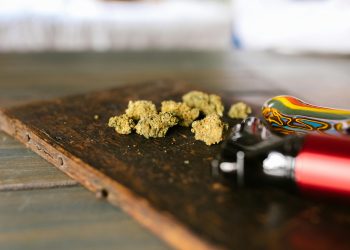If this winter gets you down more than usual, you may have the seasonal affective disorder (SAD). Also known as seasonal depression, it’s a mood disorder that happens at a particular time every year.
If you have SAD, you will experience severe mood changes and other depression-related symptoms. The symptoms usually happen during the fall and winter and start to improve with the arrival of spring. Some people may experience SAD during the summer too.
The exact reason behind the seasonal affective disorder is still unclear. But, some factors can trigger the symptoms. Researchers believe that certain hormones in the brain can cause trigger SAD symptoms in the winter season.
Also, less exposure to daylight, living far from the equator, and having a family history of depression, SAD or bipolar can trigger the symptoms.
Common symptoms of SAD are oversleeping, fatigue, weight gain, etc. Although seasonal, this condition is as severe as the non-SADs like bipolar. A study published in 2017 reported that a person with SAD could show similar depressive episodes as a person with non-SAD.
Therapies for Seasonal Affective Disorder
Once you’re diagnosed with SAD, your doctor may suggest different therapies and prescribe some medication. In this article, we will explore some common therapies according to research.
1. Light Therapy
Light therapy is one of the most common and effective treatment options for SAD. Most people see improvement within one or two weeks of starting the treatment.
Light therapy is a process where you need to sit in front of a lightbox that emits extremely bright light. You need to sit in front of the light for 20 minutes per day, preferably first thing in the morning.
In a study published in 2003, where about 80% of the patients showed positive results using light therapy. In the same study, fluoxetine showed effectiveness as light therapy. And, this medication was cheaper.
Remember, antidepressants are viable but can have some adverse effects as well. So, while you’re under medications for SAD, consider other options as well.
Another study on SAD was published in 2005. It reported that exercises could even have better effects when combined with light therapy.
Treatment is usually continued through the winter to maintain the benefits. Some people even prefer to start in the fall to prevent the symptoms.
2. Dawn Simulator
Dawn simulators can help you with the symptoms of SAD. It looks like an alarm clock. But the device generates light that slowly increases its intensity.
A 2015 study was published in the Journal of Affective Disorders. It reported that dawn simulators are as effective as light therapy for people with a mild seasonal affective disorder.
A good dawn simulator uses full-spectrum light that is close to the natural sunlight.
3. Cognitive Behavioral Therapy
Counseling is an effective way to provide help and support to people with SAD. In a 6-week randomized trial, some patients received cognitive behavioral therapy (CBT) in a group format during two 90-minutes sessions per week. Those who received CBT with light therapy showed long-term improvement.
4. Dialectical Behavior Therapy
Dialectical behavior therapy (DBT) is another kind of CBT that will help you learn how you can regulate your emotions, cope with stress, and improve your relationship with others.
Derived from a philosophical process named dialectics, this process is based on the concept of opposing force.
In a study published in 2014, DBT showed a promising result in treating borderline personality disorder, a serious mental illness.
As SAD also involves depression, this therapy can improve your symptoms.
5. Psychodynamic Therapy
This therapy will help you become more conscious of your emotions, including the troubling and difficult ones. Using psychodynamic therapy, you can have more control over your feelings.
A study published in 2015 showed that PDT might be able to reduce the symptoms of various kinds of depression. But, further studies are required to prove its effectiveness.
6. Interpersonal Therapy
Interpersonal therapy focuses on your past and presents social roles, as well as interpersonal interactions. The therapists will work with one or two problem areas in your current life.
In a study published in 2016, the efficacy of IPT was tested on 11,434 patients with various types of depression. Results showed that IPT is quite effective in treating depression. It also concluded that this method might even prevent new depressive disorders.
7. Aromatherapy
Another effective therapy that may ease the symptoms of SAD is aromatherapy. The soothing and calming effects of essential oils may help you relax and keep calm.
Research published in 2015 showed that essential oils have positive effects on depression symptoms.
How to Choose a Therapist
There are two ways you can choose a therapist for you. You can talk to a therapist in person or go for some online counseling services.
Find a Local Therapist.
Once you see the symptoms of SAD in you or in your loved one, it’s important to talk to a therapist. They can be psychiatrists, psychologists, social workers, or professional counselors based on the symptoms and severity of your condition.
It’s an effective way to deal with your symptoms. It’s because you can share your problems and the reasons behind your depression directly with someone. A good therapist will understand your problem without judging you. The therapy method can be individual, or it can involve a group, family, or a couple if needed.
Try Online Counseling Service Like BetterHelp.
A counselor can get to the root cause of your depression by talking to you. Then she can treat you based on the severity of your depression. But, if you’re not comfortable talking to someone in person, you can always go to BetterHelp.com.
BetterHelp can be a great option for someone who is not comfortable talking about their mental health in a person. It’s the world’s biggest e-counseling platform that provides you with affordable, accessible, and convenient online therapy and counseling.
A study published in 2009 reported that online CBT is just as effective as in-person CBT.
Bottom Line
SAD may be seasonal, but it can have a long-term effect on you and your family. That’s why a preventive measure is also recommended to avoid the symptoms.
You must start to take care of yourself before the winter comes. Bring a change in your lifestyle, do exercises, go to sunlight more, and try to be cheerful as much as possible. Also, include vitamin D in your regular diet.
If you see any symptoms of seasonal affective disorder, seek the help of a doctor. He/she will diagnose you and prescribe treatment based on the severity of the symptoms. And if you’re not comfortable talking directly to anyone, you may rely on online counseling.
Resource Links:
- www.betterhelp.com
- www.ncbi.nlm.nih.gov/pmc/articles/PMC4673349/
- www.ncbi.nlm.nih.gov/pmc/articles/PMC5572284/
- www.ncbi.nlm.nih.gov/pmc/articles/PMC3181778/
- www.ncbi.nlm.nih.gov/pmc/articles/PMC3004726/
- www.ncbi.nlm.nih.gov/pubmed/25885065
- www.ncbi.nlm.nih.gov/pubmed/15207942
- www.ncbi.nlm.nih.gov/pubmed/24191948
- www.ncbi.nlm.nih.gov/pmc/articles/PMC4471961/
- http://www.ncbi.nlm.nih.gov/pubmed/27032627
- www.ncbi.nlm.nih.gov/pubmed/25465853
- www.sciencedirect.com/science/article/abs/pii/S0005796709000424/




